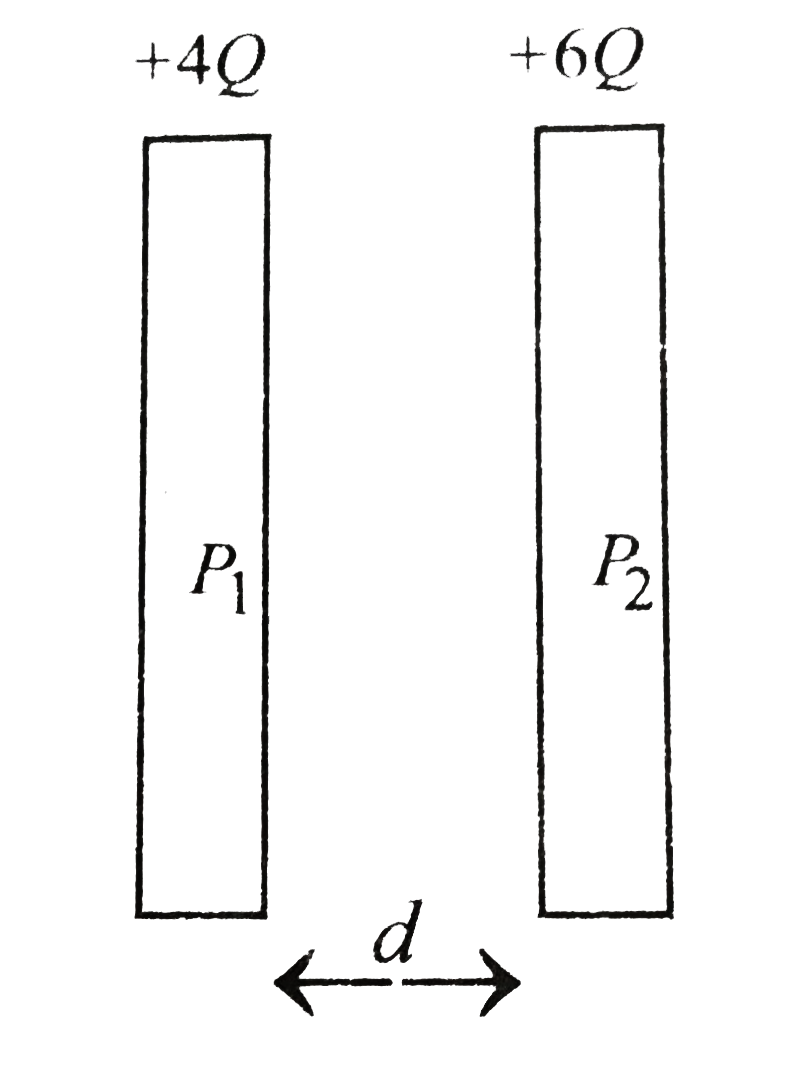Two identical metal plates are given poistive charges Q1 and Q2 (<Q1) respectively. If they are now brought close together to form a parallel plate capacitor with capacitance C, the potencial difference between them is
(Q1+Q2)/2C
(Q1+Q2)/C
(Q1−Q2)/C
(Q1−Q2)/2C
The correct Answer is:D
Electric field with in the plates E=EQ1+EQ2,E=E1−E2=Q12Aε0−Q22Aε0
E=Q1−Q22Aε0 ∴ Potential between the plates
VA−VB=Ed=(Q1−Q22Aε0)d=Q1−Q22(Qε0d)=Q1−Q22C
Similar Questions
If a thin metal foil of same area is placed between the two plates of a parallel plate capacitor of capacitance C, then new capacitance will be
View SolutionTwo plates ( area =s ) charged to +q1 and +q2(q2<q1) are brought closer to form a capacitor of capacitance C. The potential difference across the plates is
View Solution
Knowledge Check
- Question 1 - Select One
Two identical metal plates are given positive charges Q1 and Q2 (<Q1) respectively. If they are now brought close together to form a parallel plate capacitor with capacitance C, the potential difference between them is :
AQ1+Q22CBQ1+Q2CCQ1−Q2CDQ1−Q22C - Question 2 - Select One
Two identical metal plates are given positive charges Q1 and Q2 (<Q1) respectively. If they are now brought close together to form a parallel plate capacitor with capacitance C, the potential difference between them is :
AQ1+Q22CBQ1+Q2CCQ1−Q2CDQ1−Q22C - Question 3 - Select One
In an isolated parallel plate capacitor of capacitance C, the plates have charge Q1 and Q2. The potential difference between the plates is
AQ1+Q22CBQ1−Q22CCQ12CD−Q22C
When a metal slab is placed between the charged identical , parallel plates , the potential difference between the plates
View SolutionThe force between the plates of a parallel plate capacitor of capacitance C and distance of separation of the plates d with a potential difference V between the plates, is.
View SolutionThe force between the plates of a parallel plate capacitor of capacitance C and distance of separation of the plates d with a potential difference V between the plates, is.
View SolutionTwo identical conducting very large plates P1andP2 having charges +4Qand+6Q are placed very closed to each other at separation d. The plate area of either face of the plate is A. The potential difference between plates P1andP2 is
 View Solution
View SolutionA parallel plate capacitor C has a charge Q. The actual charges on its plates are
View Solution
